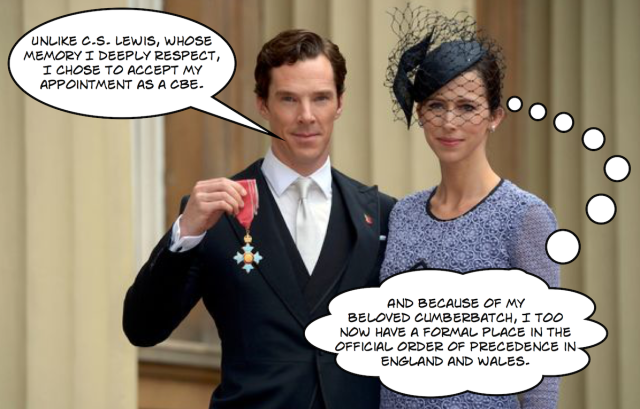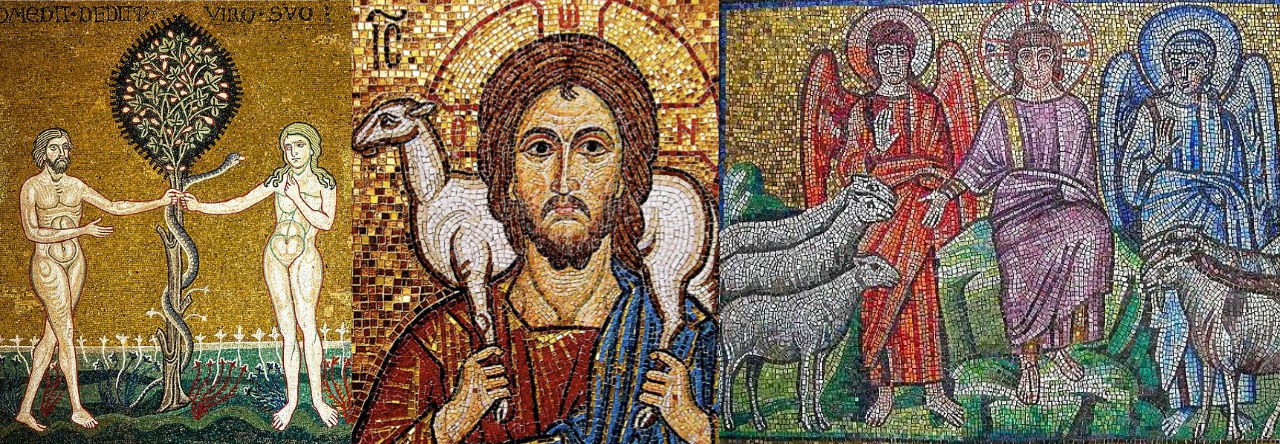 There are many sorts of titles one may accumulate, and some people pursue them with great passion. There are familial titles like “Grandmother,” military titles such as “Ensign,” academic titles like “Associate Professor,” and ecclesiastical titles as in “Archimandrite.”
There are many sorts of titles one may accumulate, and some people pursue them with great passion. There are familial titles like “Grandmother,” military titles such as “Ensign,” academic titles like “Associate Professor,” and ecclesiastical titles as in “Archimandrite.”
And that’s only the tip of the titular iceberg. Titles are prominent in many fields, such as medicine, politics and the judiciary. And appellations such as “Coach,” are precious to multi-millionaire athletic leaders and folks working with preschoolers in the gym or on the field alike.
The best way to tell how important a person’s titles are to them, is to witness how they respond to the “misuse” of one. My wife and I have a joke when I show my identification card when we enter a military installation. If the guard courteously says, “have a good day, colonel,” after I roll up the window and proceed, I will sometimes say (for Delores’ benefit) “that’s lieutenant colonel!”
If you’re unfamiliar with the armed forces, there’s a good chance you miss the joke. A lieutenant colonel is junior in grade to a “full” colonel, although addressing one simply as “colonel” is allowed. In fact, in a sense it’s an added courtesy or sign of respect. (I should mention that it’s not uncommon for some of the civilian guards to follow up such a greeting with a glance towards my wife and the words, “and a good day to you, general.”)
I have mixed feelings about titles, a trait I believe I share with C.S. Lewis.
In 1952, Lewis declined appointment as a Commander (CBE) in the Order of the British Empire. He did so to avoid entangling his Christian witness with political considerations. But by declining he forsook the opportunity to be known as “Sir Lewis,” although, I doubt he lost sleep over his decision. (In fact, in his humility, Lewis never revealed the matter for public scrutiny.)
A 1959 letter to Lance Sieveking, the BBC producer who wrote the radio script for The Lion, the Witch and the Wardrobe, offers an interesting insight into Lewis’ attitude about titles. He begins with this greeting:
Dear Sieveking
(Why do you ‘Dr.’ me? Had we not dropped the honorifics?)
Volume three of Lewis’ letters reveals this was representative of his thinking. Once he had established a rapport with some correspondents, he requested that they drop the use of titles. A typical example reads, “We may both drop the honorific now, mayn’t we?.” In one case he writes in the imperative, “Dear Hooton (Do drop the honorifics!).”
So, Do Titles Matter?
My grandchildren surprised me the other day by addressing me as “Doctor Grandpa.” They proudly shared in my joy (read “relief”) at having completed my Doctor of Ministry degree.
I responded to their adulation with “actually, kids, it’s ‘Reverend Doctor Grandpa.’” This led to a fun discussion about titles during which I was able to explain to them how my pastoral title was of greater significance to me than the doctoral honorific. After which I reminded them the matter was moot because all I want them to call me is grandpa. I explained how only eight people in the entire world can call me that, and it made that title extremely precious to me.
Ultimately, the most valuable title any human being could have is to be addressed as son or daughter, by God. As Jesus’ disciple John wrote:
See what kind of love the Father has given to us, that we should be called children of God; and so we are. (1 John 3:1).
On this, I have no doubt C.S. Lewis would agree.
Despite this, there are cases where titles are critical. The military, with its “chain of command” sometimes being a life or death matter, is a prime example.
In other settings, the honorifics are less significant. I addressed all my instructors in college as “Professor,” regardless of whether they were full/associate/assistant/whatever.
I doubt that many of Lewis’ very fortunate students thought less of his lectures because of Oxford’s politics which withheld from him the full “professorship” he had certainly earned. (It would be left to the wiser University of Cambridge to rectify this oversight.)
This suggests to me that titles mean less to most people than the way others think of them. If people respect you as someone with integrity . . . if they call you “friend . . .” how much more fortunate could you be?

What a wonderful post.
Daughter of God, wife, mother, daughter, friend are my favorites.
Very precious titles, indeed.
I worked at a research lab where we scientists were not officially addressed as “Doctor.” The reason went back many years. When the company first started hiring Ph.D. scientists and engineers, the president of the company only had a masters degree. Too avoid him being introduced as “Mister” while some of his youngest employees were addressed as “Doctor,” it was official company policy not to use “doctor” for anyone. That tradition carried forward for decades. I think it was an excellent way to encourage us to value people for what they knew and did, not for the letters behind their name.
That’s a great example of affirming people for their unique contributions, rather than their accumulated titles.
It’s great that you understood the history of the tradition in that lab. Often we do things in uncommon ways simply because of habit.
“Doctor” is such an odd title anyway, at least here in the U.S. Almost all of my relatives and most of the people I know immediately think of medical doctors (physicians, specially) when they hear the title. And I certainly wouldn’t want most of the brilliant doctors I’ve known having anything at all to do with my health!
Well done. I come from a church community and a family that has thrown off titles, so they echo as foreign to me still. In Japan, this was particularly emphatic as I might be called Mr. Honourable Teacher, or Mr. Teacher Priest–up to three honourifics.
My students often call me Professor or Dr. It’s actually painful to me because I am not a Doctor, and in the Germanic tradition, “Professor” is a title of high esteem. Lewis was not Professor until after 30 years of teaching, in the move to Cambridge. I’m part of one school where it is our official policy to Prof & Doc one another.
Yet, intellectually, I have chosen to let this go. I don’t want the way people try to be polite to become a burden. It still causes me pain, but in the grand scheme of things, it’s a pretty small pain. Likewise, Lewis didn’t rebuke people in their honourifics until he called them friends (i.e., by last name).
Interesting. I’m curious about the academic titles at the school to which you refer. Are they even use when in private conversations?
In the US military chaplains are addressed as “chaplain” or an appropriate religious title (e.g. “father,” “rabbi,” etc.). Naturally, most clergy prefer in their personal conversations to go by their names. However, I always reminded members of my staff that when referring to one another in public, we always use an appropriate title, as a sign of professional respect.
A handful of chaplains are extremely rank conscious however, and insist on having subordinate chaplains address them with their title. They do not naturally reciprocate, and assume that you appreciate being addressed by your familiar name, by a presumed “superior.” Fortunately there are not too many of these.
I once told one who made it clear that even in private conversations it was inappropriate for a “junior” chaplain to address him by name, “That’s fine, Chaplain —-, and I would prefer to have you address me by the same title as well.” It shocked him… but then, I’ve never been one to massage the psyches of egotists.
No, we don’t Prof ourselves around the digital hallways–it’s more the public thing. Rank consciousness, I know, is a thing for some, and because I am so against it I have the preference for the person that can receive accommodation but who does not thrive on it. However, that’s really my own bias (which I think you share).
Yes, I do agree. I witnessed some rank oriented people being humbled, and it was always uncomfortable, but good (I hope) for them. By that, I mean that many senior military people are shocked when they “lose” their rank in retirement. As for me, I always referred to my retirement from active duty as my impending “promotion to civilian.” Among other things, it meant the restoration of all of my civil rights!
Pingback: A Dose of Humility for Writers « Mere Inkling
Pingback: College Masters Transformed Into Heads « Mere Inkling Press
Pingback: C.S. Lewis & Roald Dahl « Mere Inkling Press